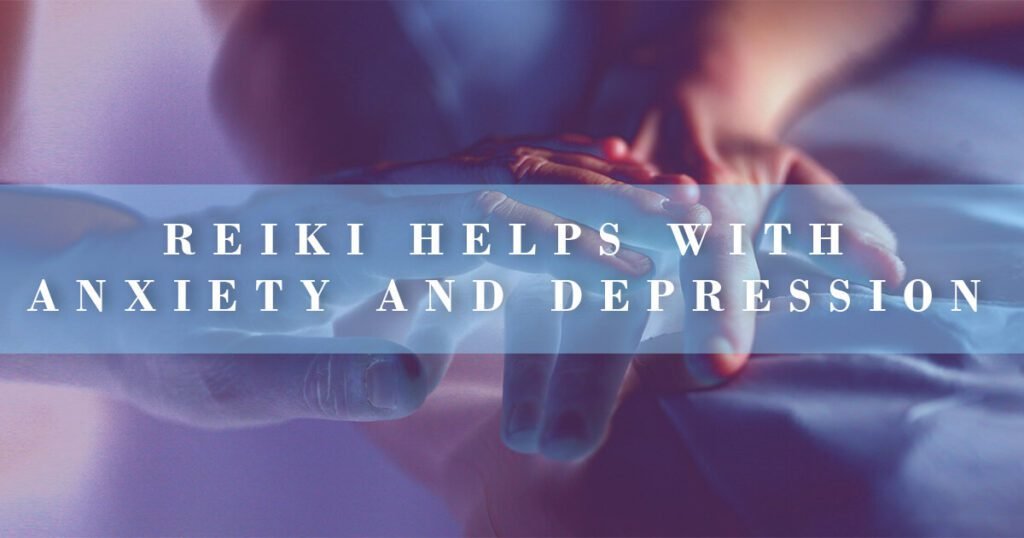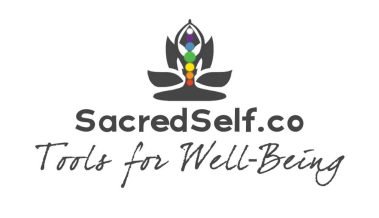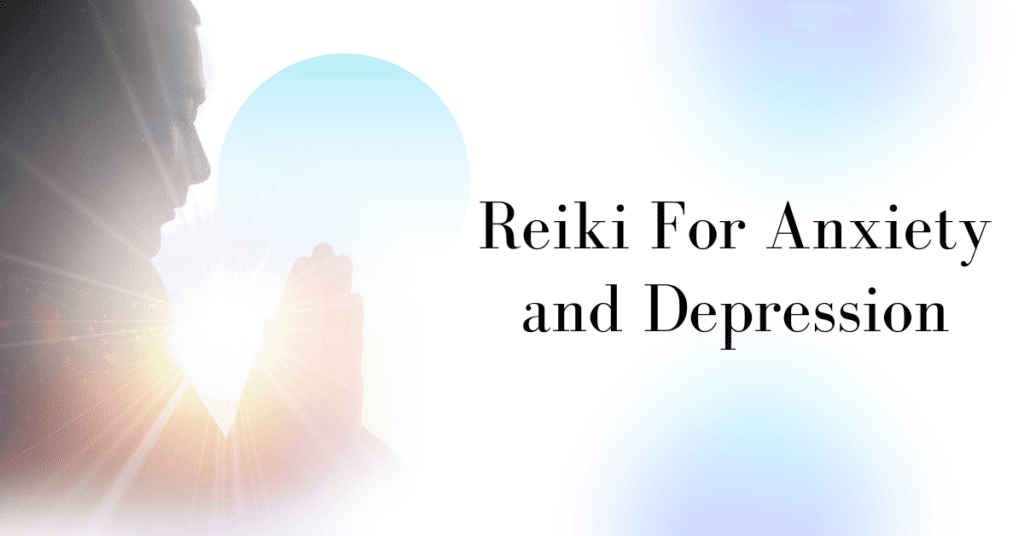This post may contain affiliate links.
At its core an ancient healing technique, Reiki is a form of therapy that can help you get in touch with your innate energy and use it to heal yourself from the inside out.
Recently popularized in our western world, a Reiki session helps you tap into your own reservoir of energy, which is also known as ‘chi’ or ‘kami’, depending on the origin of the source. In short, Reiki helps with anxiety and depression in your body by promoting the flow of these universal energies and removing any blockages that have been caused by stress and creating their own stress as a consequence.
If you have recently been diagnosed with depression, anxiety, or another mental illness, a Reiki session such as this may be especially beneficial to you as there are many studies that have shown that reiki helps with anxiety and depression and with many health conditions such as chronic pain or grief.
First, we will have a look at some other aspects of Reiki and then we will discuss how Reiki helps with anxiety and depression.
If you are interested in becoming a Reiki healing master yourself I recommend this internationally recognized Usui Reiki Master Teacher Online Course from the Reiki Healing Association.

Where Does Reiki Come From
Reiki is a Japanese word that means “universal energy.” It’s an ancient healing technique that involves the transfer of Reiki energy to another person, or self-treatment. Reiki can be used for stress relief, relaxation, and even as a way to manage anxiety and depression.
If you’re someone who has suffered from chronic anxiety or depression in the past, you know how draining it can be. When you’re in this state of mind, it feels like everything is at your fingertips and there’s no way out.
Reiki isn’t just beneficial for people with depression and anxiety; anyone can use Reiki to heal many problems-internal-link- not just anxiety and depression.
How Does Reiki Work?
Reiki is a type of alternative medicine that aims to balance the energy flow in the body, which can result in improved overall health and well-being.
Like other types of alternative medicine, reiki works by relying on the idea that subtle energy fields exist all around us, and that these fields can become out of balance if certain things are happening in our lives. By sending healing energy into the body, reiki practitioners aim to bring these subtle energy fields back into balance and restore harmony throughout the body.
There are many different ways to practice reiki, but all involve placing your hands on someone’s body (either directly or through the use of an object like a crystal) and gently sending healing energy into them.
While there isn’t much research to show exactly how reiki works, there is some evidence that it has some effect. For example, one study found that people who received reiki treatment showed improved blood flow and reduced levels of stress hormones compared to those who did not receive treatment.
Now that you know more about Reiki and how it helps your body, mind, and spirit, it is time to see how reiki helps with anxiety and depression.
New Product Offer: Cosmic Energy Bracelet with Free Shipping! Check it out here.

How does Reiki helps with Anxiety and Depression?
Reiki is not a new treatment option. It has been around for hundreds of years, but it’s only recently become more popular due to the growing popularity of complementary therapies. In some ways, Reiki is similar to acupuncture; both treatments aim to improve your circulation and stimulate the flow of energy along your meridians, or pathways that connect your body with your mind and spirit.
Answering the question if Reiki helps with anxiety and depression I will have to speak from personal experience and say that yes it does. Studies such as this one, well-trusted articles such as this one from Reiki.org, along with other articles such as this one from scmp are also good statements that indeed Reiki helps with anxiety and depression.
There are many different types of Reiki. The most common type is Reiki Level 1, which is used to treat pain relief, stress relief, and relaxation. It also helps to reduce inflammation in the body by increasing blood flow.
Reiki Level 2 can be used to treat deeper emotional issues such as chronic anxiety, and post-traumatic stress disorders or to treat prolonged grief. It can be done one-on-one or with a group of people (in a class setting). It can be used as a supplement to meditation or cognitive behavioral therapy (CBT), or it can be used alone for healing purposes.
Reiki Level 3 is used to help with spiritual growth and transformation. This type of healing works with the root chakra (the source of all life) to bring about healing and balance in one
If you are new to this try out this wonderful Reiki Colouring Book With Reiki Symbols Healing Affirmations to start your Reiki healing journey on a colorful note.
How do You Treat Yourself with Reiki?
The most important thing to know about Reiki is that it’s not something that you do to yourself — it’s something that you do with yourself. You have to be willing to open up your mind and your body so that Reiki can work its magic.
You can use Reiki on yourself in three ways: through hands-on healing, through self-applied energy work, and prayer or meditation.
The first step is always the same: relax, connect with yourself, and let go of any expectations or preconceived notions.
Once you’re able to fully relax, take your time and move slowly as you begin doing whatever it is that you’re doing. For example, if you’re doing a hands-on healing treatment, begin by moving slowly across the surface of the skin until you feel a sense of warmth throughout your entire body. Follow your intuition as you continue moving across the surface of the skin until you feel a sense of warmth throughout your entire body.
However, there is a wide range of ways to use Reiki on yourself. Some people prefer to self-administer using a variety of techniques, such as holding their hands over their hearts. Others prefer to take a more active role and place their hands on specific parts of the body, such as the head or hands. It is important to get familiar with these techniques before you begin so that you know what works best for you.
If you want to learn more about how to become a Reiki healer yourself have a look at this internationally recognized Reiki Course from the Reiki Healing Association.
Finding The Right Reiki Practitioner For You
Reiki is a very simple and relatively new technique, so finding the right Reiki practitioner is not always easy. It can be difficult to find one that is experienced in the art and has good, positive traits. This can make it hard for someone to find a Reiki practitioner who will work with them on a personal level.
The good news is that the practice is becoming increasingly popular and with it the demand for more Reiki practitioners. The bad news is that these practitioners may not offer you the kind of personal attention you would like from someone who works exclusively in Reiki.
It’s important to know what your goals are when choosing a Reiki practitioner. What do you want from a Reiki practitioner? If you’re looking for someone to help you through your depression, then she will provide this benefit because she understands how to work with your body and how it works best.
Heal yourself and others with this Internationally recognized Reiki Certification: Usui Reiki Master Teacher Online Course.
Other Ways To Manage Depression or Anxiety
Most likely Reiki helps with anxiety and depression. But Reiki’s ability can also be enhanced through other means and are a lot of different ways that you can help yourself or your loved ones with depression and anxiety. You can do this by taking a few simple steps to help you deal with your struggles.
These can include things like trying to exercise more, eating a healthier diet, getting enough sleep, and surrounding yourself with positive people. If you suffer from anxiety, try to do things that help you relax.
If you have trouble falling asleep, try to cut back on the time you look at screens before bed. A lot of these things can be very helpful in managing your depression and anxiety.
These might include mindfulness, exercise, or simply spending time with friends and family. One of the most important things to remember about these methods is that they won’t work if you try to do them all at once. Trying to fit too much into your life can make things worse. Start with one or two of these methods and work your way up as you feel more comfortable.
Conclusion
Reiki is a form of energy healing. It can be used to treat all kinds of conditions and in my personal experience, I am confident to say that Reiki helps with anxiety and depression as well. Many studies have been done on Reiki, and although not many of them are as convincing I believe that the future is bright for this ancient healing practice.
If you are using Reiki as a treatment method, you must do it correctly as this can lead to other problems later on if you don’t follow the right instructions and instructions correctly. The more accurate the instructions are, the better the results will be!
If you want to learn more about how to become a Reiki healer yourself have a look at this internationally recognized Reiki Course from the Reiki Healing Association.

